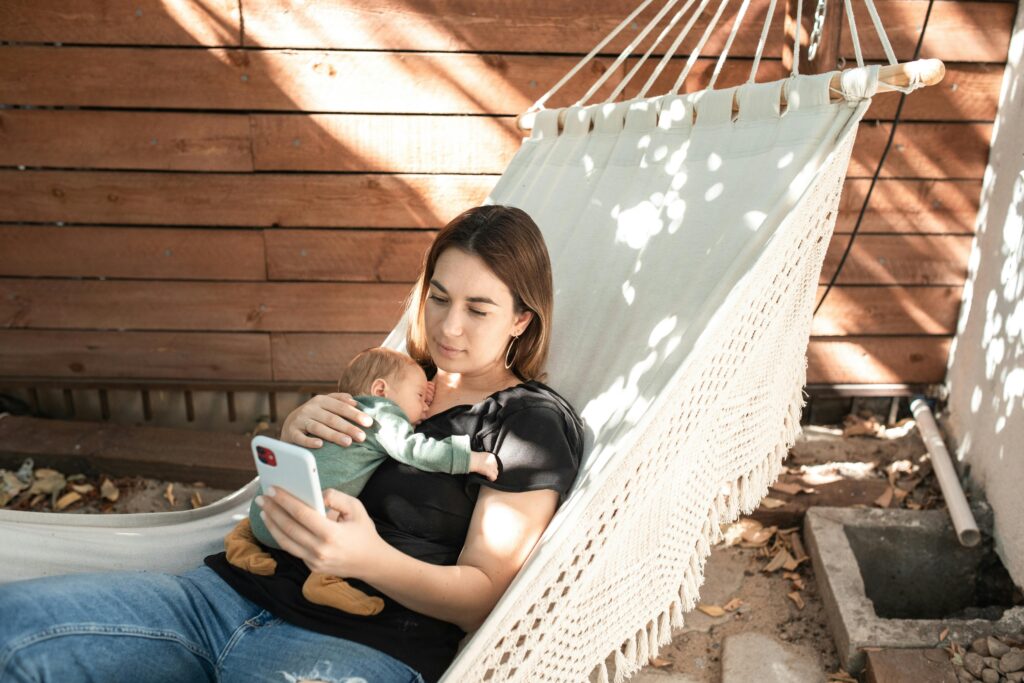 As Certified Breastfeeding Counselors (CBC), we are passionate about the life-changing benefits of human milk, and we’re not alone. We’re also not alone in knowing there’s a lack of breastfeeding support.
As Certified Breastfeeding Counselors (CBC), we are passionate about the life-changing benefits of human milk, and we’re not alone. We’re also not alone in knowing there’s a lack of breastfeeding support.
In the heart of Bristol, a unique social enterprise called Human Milk, founded by Claire Tchaikowski, is working to ensure that the advantages of breast milk are known, accessible, and better supported.
What is Human Milk and how is it hoping to fill the gap where UK parents aren’t getting enough breastfeeding support?
What Is Human Milk?
Human Milk is a Bristol-based social enterprise with a mission to raise awareness about the benefits of breast milk and to create a supportive infrastructure that allows more parents to access breast milk for their infants.
Claire Tchaikowski, the visionary behind Human Milk, is committed to improving health outcomes for babies by increasing the availability of human milk, whether from the mother or through ethical and safe milk sharing.
Since it started, Human Milk tries to empower parents with the knowledge and resources to make informed decisions about feeding their babies. The organization is deeply focused on education, advocacy, and the promotion of human milk as the best option for infant nutrition.
Many parents are aware of the benefits of breastfeeding and breast milk. However, if they are unable to feed exclusively at the breast or express enough milk to meet their baby’s needs, they are not always aware of the option of safe milk sharing. Human Milk seeks to help more parents understand their options and the possible benefits of safe milk sharing.
Benefits of Breast Milk
As CBCs, we are already well-versed in the numerous benefits that breastfeeding provides for both babies and parents. Human Milk amplifies these messages by highlighting the science-backed advantages of breast milk, including:
- Optimal Nutrition: Breast milk is tailored to meet an infant’s changing nutritional needs, containing the perfect balance of fats, proteins, and vitamins.
- Immune Support: The antibodies present in breast milk help protect infants from infections and diseases, offering natural immunity during critical early development stages.
- Bonding and Emotional Health: Breastfeeding fosters a deep emotional connection between the parent and the baby, providing comfort and security in addition to nourishment.
- Long-term Health Benefits: Research shows that breastfeeding lowers the risk of asthma, obesity, diabetes, and other health issues later in life for both babies and breastfeeding parents.
By focusing on these core benefits, Human Milk aligns its efforts with the science that supports breast milk as the healthiest choice for infants, promoting breastfeeding as the natural and optimal method of feeding. Should exclusive breastfeeding at the breast not be possible, Human Milk helps parents learn about the option for milk sharing.
Milk Sharing and Support for All Families
Human Milk advocates for safe and ethical milk sharing. While breastfeeding is often the ideal choice, it isn’t always possible for every family. Some parents may face challenges such as low milk supply, health issues, or adoption, which can make direct breastfeeding difficult or unattainable. In these situations, milk sharing becomes an important option.
Human Milk’s approach to milk sharing is built on trust, community, and safety. The organization works to connect families with lactating parents willing to donate their breast milk, ensuring that all families—regardless of their unique situations—have access to human milk.
By facilitating safe milk sharing, Human Milk fills a critical gap for families who want to feed their babies breast milk but are unable to do so directly.
It provides education on proper milk storage, safety protocols, and donor screening to ensure that milk sharing is conducted in a manner that prioritizes the health and well-being of the infant.
Certified Breastfeeding Counselors and Human Milk
As CBCs, we play a crucial role in supporting initiatives like Human Milk. By staying informed about community resources, we can better guide the parents and families we work with. If you’re not in the UK, take time to learn about similar resources in your area.
For example, a similar resource is available in the US called Share the Drop.
When families face breastfeeding difficulties, our role is to provide lactation support within our scope of practice. When families are not able to provide enough breast milk, it is important we provide them with information about their options such as formula but also human milk sharing. It is not our place to pressure them into using formula or milk sharing, but rather provide them with resources and information so they can make the right decision for their family.